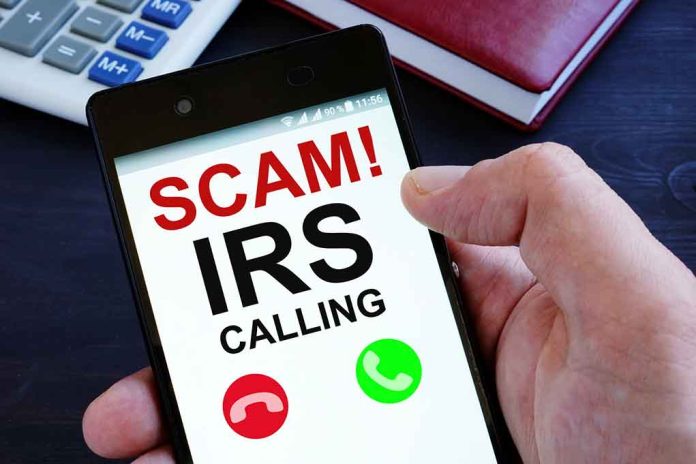(ModernSurvival.org) – It seems as though there is no low that criminals won’t sink to in order to steal from an unsuspecting mark. These morally bankrupt individuals target anyone who may fall for their schemes, and their victims are often the most vulnerable members of society. The Federal Bureau of Investigation (FBI) is warning Americans to be on the lookout as a dangerous scam is back on the rise.
Imposter Scams Surging
Imposter scams come in many forms, but can generally be summed up as con artists pretending to be someone they’re not to scam another person out of money. These criminals will impersonate a trusted person, business, or governmental institute, using the perceived credibility to deceive potential victims out of their hard-earned cash. While imposter scams aren’t new, the FBI warns they’re making a resurgence in America.
How Bad Are Imposter Scams?
In February of 2022, the Federal Trade Commission (FTC) released a report showing Americans had lost nearly $6 billion to fraud the previous year. At least $2.3 billion of these losses were attributed to imposter scams alone, a $1.1 billion increase from 2020. These numbers show that imposter scams are a genuine threat to Americans, capable of financially crippling unsuspecting victims. So what should you look out for to avoid becoming the next person to be scammed?
IRS Scams
Victims of this scam will receive a phone call from someone claiming to be an agent from the Internal Revenue Service (IRS). According to the FTC, this call might appear as an IRS number on your caller ID, and the fake agent could even provide the last four digits of your social security number — all of which makes the scam sound incredibly legitimate. At this point, the con artist will claim you owe the government money and will claim you will be arrested if you don’t pay.
Many individuals will follow the scammer’s request. After all, it looks pretty legitimate at face value. However, there are some tell-tale signs that this is a scam.
- The IRS will only contact you via the standard mail service. They do not generally contact citizens via email, text, or phone unless a phone call has been scheduled in advance
- The scammer will ask for payment through wire transfers or prepaid credit cards. The IRS doesn’t require a specific form of payment.
Social Security Scams
Here, the scammer will contact you and claim your social security number (SSN) has been suspended for some reason, such as suspicious activity or a crime. Sometimes the caller will ask you to confirm your SSN to reactivate it, which leads to them stealing your identity. Other times, the scammer will claim your bank accounts are about to be seized, and they can help you avoid the issue — by taking your money out, buying gift cards, then giving them the codes.
As with the IRS scam, calls from these con artists will often show up as from the real Social Security Administration (SSA) phone number. Again, this isn’t really the SSA. The fraudster has simply spoofed the number.
These scams have also begun showing up in text messages and emails. To make them seem real, the scammers will go so far as to send identification images to their potential victims, such as badges or credentials. This is another red flag, as government officials do not send official government identification documents via email or text.
Protect Yourself
If you suspect someone is trying to use an imposter scam against you, here are some ways to protect yourself:
- Never give out personal information to someone you don’t know over the phone or in a text or email. This includes your banking information, personal address, and social security number.
- If the person contacting you wants you to pay through Venmo, CashApp, Zelle, or prepaid credit cards, they are trying to scam you. Do not give them any money.
- If you’re worried about a call that seems to originate from a government entity, hang up and dial the actual phone number of that organization — not a number provided by the alleged agent. Remember, scammers can fake a phone number on your caller ID, but when you try to call the official number, they cannot intercept that call.
- Scammers will use high-pressure tactics to try and scare you into complying with them. Do not fall for their tricks. Hang up and take action.
If you believe you have received a scam call, write down as much information about the caller as possible, such as the phone number and name of the caller, then hang up the phone. Report the suspicious contact to the FTC or the FBI as soon as possible. The faster you file a complaint, the higher the chances the scammer will be caught and brought to justice.
We must remain vigilant against all threats to survive in this day and age. For more information on how to protect yourself from the dangers of the modern world, take a look at our article about living among terrorists.
Copyright 2023, ModernSurvival.org













